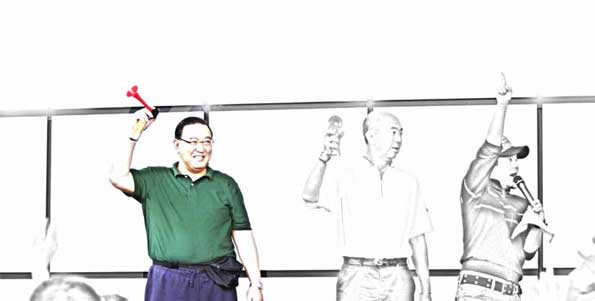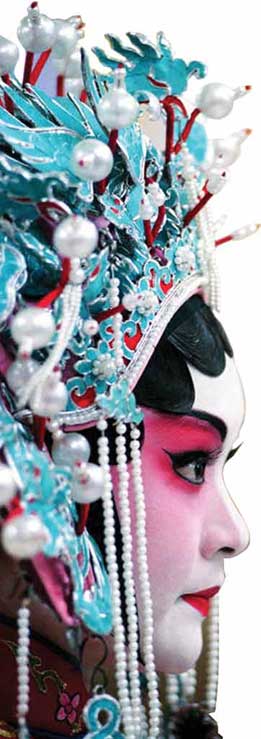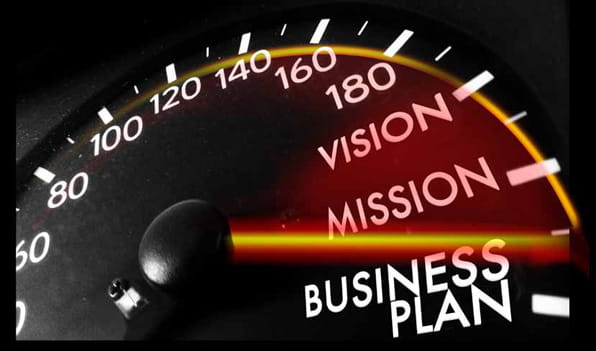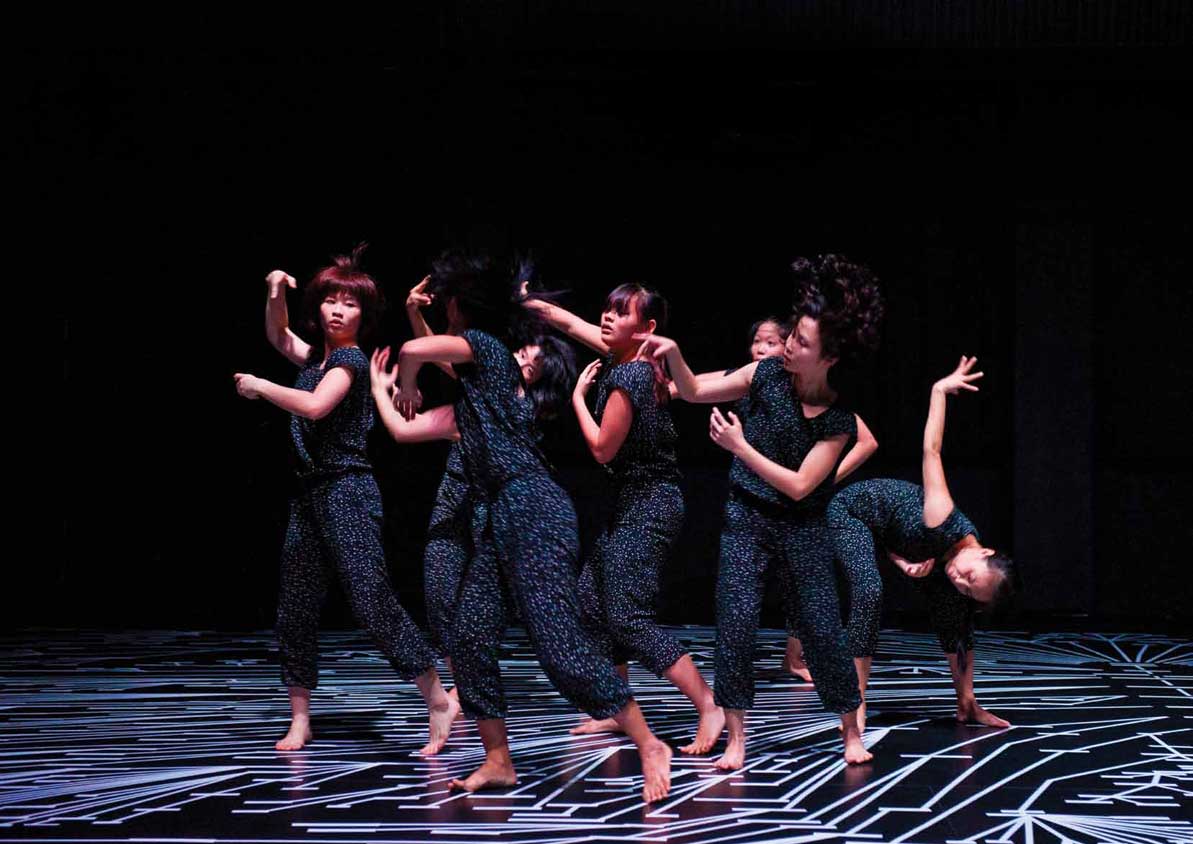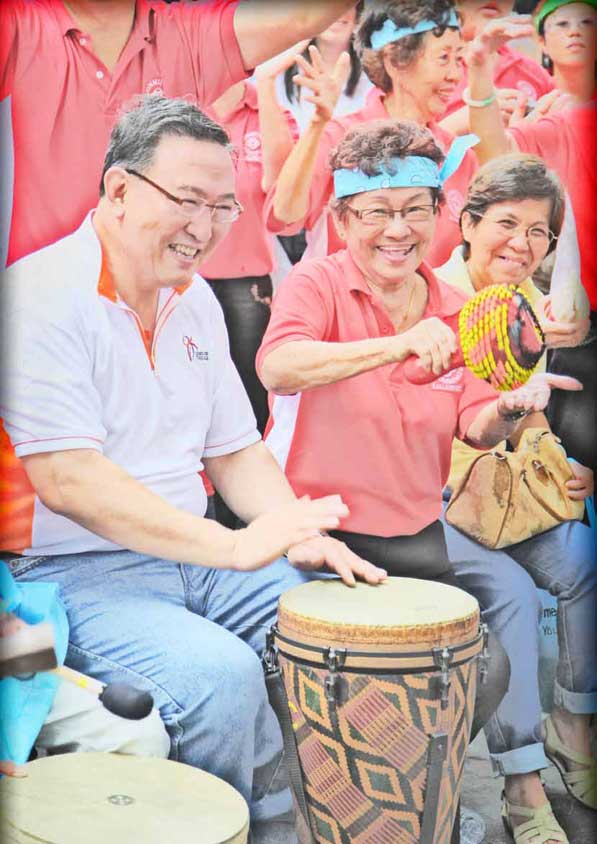 The price of rapid success is emotional underdevelopment, reckons Gerard Ee. As the man who has been called upon to fix things, he feels we are not cohesive as a society and children need to be taught to cope with moral dilemmas.
The price of rapid success is emotional underdevelopment, reckons Gerard Ee. As the man who has been called upon to fix things, he feels we are not cohesive as a society and children need to be taught to cope with moral dilemmas.
By Kannan Chandran
At the highest levels of public service, Gerard Ee has been called upon to restore confidence in the National Kidney Foundation after the charity’s corruption controversy broke in 2005. He was also put in charge of Singapore’s Ministerial Salary Review Committee in 2011. Away from these front page activities, his various roles have seen him helm the National Council of Social Services, chair the Automobile Association of Singapore, Changi General Hospital and Tiger Airways, among many other organisations.
He is the son of Singapore’s late ‘Father of Charity’ Dr Ee Peng Liang, the founding member and President of the Singapore Council of Social Service who set up the Community Chest in 1983. The younger Ee followed in his footsteps.
His father started as a stenographer at a law firm before being encouraged to pursue further studies. He eventually set up his own accounting firm, Ee Peng Liang & Company. It merged with international group Ernst & Whinney in 1986, which grew into the largest accounting firm in Singapore and Malaysia. It is now known as Ernst & Young.
The youngest of five children, Ee would chauffeur his father to various meetings around town, usually for community welfare activities, and eventually got roped in.
His selfless volunteerism was not without setbacks. He has battled cancer, which he views as his greatest blessing as he learned to surrender to his Catholic faith. When faced with adversity, the optimist in Ee surfaces: he looks for lessons in the challenges, while resorting to his values and faith to stay centred. His diverse experiences have helped shape his view of Singapore’s dynamic society. In a challenging environment driven by consumerism, Ee still maintains a simple lifestyle. He confines his monthly expenditure to $1,000 cash that his wife, Celina, draws from his bank account.
Today, the father of two teenagers has less on his plate. He chairs the Public Transport Council and is on the Governing Council of the Singapore Institute of Management. He remains actively involved in community activities, well aware that another public controversy could mean a phone call to action.
Ee talks to SINGAPORE about his life and the new Singapore he sees awakening around him.
SG: You’ve seen a lot through your years in corporate and social environments. How has Singapore changed?
Ee: I think Singapore has unique experiences. It’s nothing but a piece of rock. We have to create the wealth we hope to have. Hard decisions have to be made to keep the economy ticking away. We’ve been successful at that. Problem is, we’ve been successful in a hurry.
We became independent in 1965 and realised we had no real competition. China was still communist, Vietnam still embroiled in war. Thailand had just started industrialising, and Indonesia was facing challenges. In a hurry, we took advantage knowing that some day they would open up and catch up. And we have done tremendously well — only trouble is, human beings do not evolve at that speed.
You can force-feed knowledge and competencies, but emotions take time to evolve. The Europeans and Americans went through hundreds of years of history as slave traders and lived with violence to evolve emotionally. I think only 20% will find success while the rest will struggle, and those who are struggling will want to find meaning in life. Success is defined as personal fulfilment. Thus, whilst wealth enables a high level of comfort, it has no direct link to fulfilment.
You can have all your economic things, but if you want to build a nation, you must have social order — and society needs to be in a good state. So in the last few years, there’s greater emphasis on social welfare and social issues. The very technical team that has built up the economy is trying to address social issues in the same way. It doesn’t quite work that way. You can’t use the same KPIs for developing the economy for social issues.
SG: What is the Singapore of the future going to be like?
Ee: It’s difficult to figure out what we’ll be like. We’ll certainly be cosmopolitan. It will depend on how successful we are in getting the new Singaporeans integrated into society. We are talking about one-fifth of the population, so that’s a lot of people. It’s nice to say we have a melting pot of cultures, but it doesn’t lead to a cohesive society. That’s a nice place to visit, but not a nice place to live in. A nice place to live in is where the society is cohesive.
SG: What needs to be done?
Ee: We need people to have that end vision that we want a cohesive society and get everyone to do that extra bit. If everyone takes half a step, you’ll feel the effects. If nobody budges, you’re going to have pockets of different people. We have a few things in our favour. The common language is English. If you can’t communicate, there’s no meeting of the minds. Let’s be patient, work on the children. You need people to prompt them. A lot of families have stopped eating sharks’ fin because of the children. Children are great influencers. Parents will do a lot of things for them. It’s doable if we plant the messages in the children. When the children grow up, hopefully the next generation will be better off. It takes two to three generations to effect change. Learning moral dilemma and discernment should start from an early age. We are facing it at home, at work, in society. Everything is a decision-making process. If you don’t have a strategy for it, you will avoid making decisions. Sometimes we say new generations are soft, but that’s not necessarily true. They are just avoiding it because they don’t know the right answer. It’s difficult for Singaporeans because
we only like things that have a right and wrong answer — we’ve created this culture of right or wrong, pass or fail. No in-betweens. Moral dilemma has no right or wrong. You just have to be comfortable with it.
SG: Is your relationship with your children similar to what you enjoyed with your father?
Ee: I give my children a lot of leeway and discipline them less than my father did me, but I always feel I could have done better as a father. The most important thing to me is communication. I encourage my children to follow their passion and put their best into it. I do not have a fixed idea of what they should be except that I want them to be upright citizens. I am proud of my son Sylvester, 19, and my daughter Marianne, 17. At their ages they are very much works-in-progress, but I can see that they do have good values and compassion for others. To me, these are the important matters. Help them build their character and, as for the rest, trust in the Lord.
SG: How would you define the heart and soul of Singapore?
Ee: A lot of committees have been formed to figure this out. I’ve participated in three of them. I don’t think anyone can put a finger on what Singapore is for people. I think nobody has really looked at it from a non-economic point of view. If you look at America, it’s a diverse group of people, and they are proud to be Americans, especially in a crisis. They don’t sing Star Spangled Banner. The common theme uniting them is America the Beautiful, because the song is about a dream. Compare it to Stand Up For Singapore and Count On Me Singapore, it’s as if we haven’t done enough. What holds people together is a common dream. Where is that song that paints the dream that we can share?
SG: Why isn’t that dream happening?
Ee: You need people who are that way inclined, not people who are into economic substance. Economic substance by nature is about constant change. It’s not something you’ll sustain. When it comes to building a community, you need someone who says you’ll be building on the same dream three generations on. You need a different mindset. The starting point is to look at what Singapore needs. We have to do what we can for the economy — globalisation, specialisation education. But having done or planned all that, the missing link is this: not everyone is born to fit into that system. I use the analogy of a Chinese physician’s prescription to explain this. The sinseh will diagnose your ailment and write in the top half of the prescription sheet the herbs necessary for treatment. He knows every herb has a side effect, so when he’s finished, he goes back and writes in the second half the herbs that will balance and counteract the side effects. We are very good at the first half. We do the right things for the economy, which is why we have never suffered any of the downturns for very long and we can always turn it around and keep on going. But people are feeling the effects of it and there’s nothing to mitigate it. They are beginning to, but they’ve not been good at it. I think the reason it’s been neglected is because
we haven’t even begun the science of calculating the cost of not doing something, which can be many times more than the cost of doing it.
We are beginning to be a bit better at it. If we look at healthcare, greater investment is being put into keeping people healthy than to treat them when they fall sick.
SG: Have we forgotten how to live within our means?
Ee: We have forgotten to appreciate our blessings. As a result, we are totally confused between ‘a need to have’ and ‘a nice to have’. We don’t need many things — just a roof over our head, three meals a day, clothing and a job to occupy ourselves. Other than that, it’s nice to have. It’s all part of the capitalist system. Every single advertisement is designed to create discontent — but if people don’t go out to buy, there will be a huge economic meltdown. There will be nothing to manufacture. I’ve learnt that Pareto’s Principle (80% of the effects come from 20% of the causes) works, that 80% of people will chase and buy things to support the 20%. I don’t believe that equality exists. There will always be 20% much better off than the 80%. It’s a natural desire to long to belong to the privileged. That leads to invention and creation of ideas. The capitalist system is not all bad. Because of that, we have technology and new gadgets.
SG: How do you inculcate a system of ‘having’ versus ‘getting’?
Ee: It’s down to your values. It should tell you that it’s OK that you don’t have what your neighbour has. What should rank highly in your value system are contentment, love, your family and so forth. Meritocracy has good and bad aspects. In its proper context, it doesn’t matter who you are. If you are willing to work for it, you will rise through the ranks. To rise, you have to be above people.
You want to be successful in your career, but within your value system you must include compassion for others less fortunate. Can you truly be happy in an environment where everybody else is suffering? I think this hit me when I first visited Calcutta in 1965. My father wanted me to experience different airlines, so on the way home from London to Singapore, being on Air India, I stopped for half a day in Calcutta. We were staying in this spanking new hotel by the beach, but all the way from the airport we saw poverty everywhere. A normal human being would feel guilty to be enjoying the trappings of wealth if they are surrounded by slums.
SG: Is empathy lacking in society?
Ee: I think so, due to the lack of exposure and interaction. People are just so busy trying to be a success in life. There’s a whole list of things that are must-dos, like the annual holiday. In the old days, you didn’t even think of it because you couldn’t afford it. Having said that, developing empathy is a question of proper planning — even if it’s corporate social responsibility (CSR). Meet someone disadvantaged and you never know how it will touch you. At the very least you will appreciate more your own blessings. While I’m critical of many CSR activities, it’s still an opportunity for volunteers to interact with beneficiaries. Maybe out of 1,000 people at the event, 10 lives will be touched. They will then influence their immediate family and friends.
SG: What have you learnt from business and applied in social work and vice versa?
Ee: There are two types of people in business. One goes out to win only. The other goes out for a win-win outcome. The latter will learn about human nature and relationships, and it gets carried out in the rest of their lives, leading them to create the environment that will support it. It makes sense for a businessman to support the community. When the community is in order, the environment is right for business, and more of his products can be sold. Only a businessman in a win-win situation can see it from that perspective.

